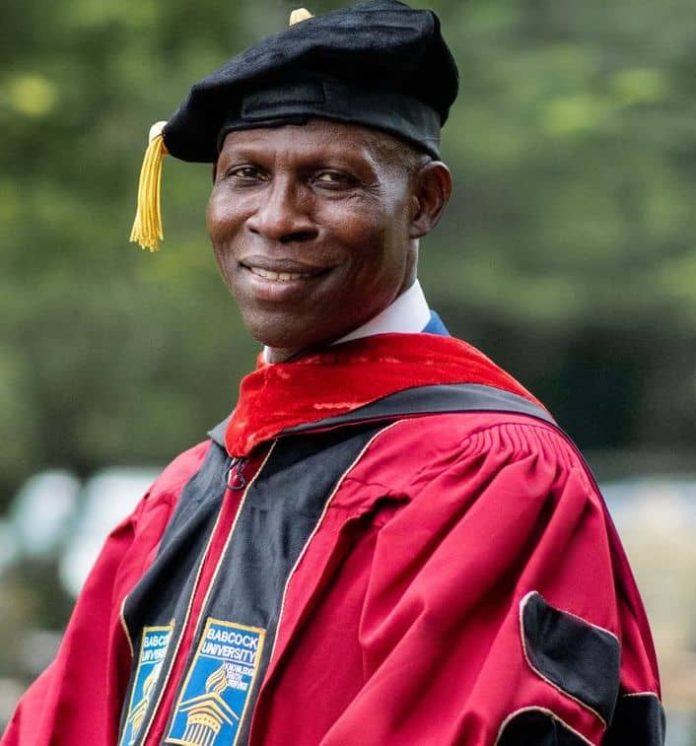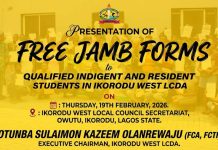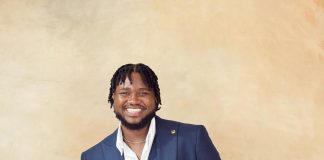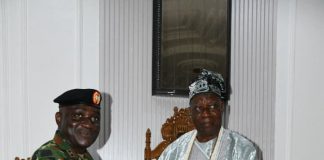July 24, 2025 was a day of triumph, gratitude, and deep reflection as Dr. Bisi Oni walked across the stage to receive his doctoral hood during the 14th Doctoral Hooding Ceremony at Babcock University, Ilishan-Remo, Ogun State. But this was more than a personal milestone — it was the celebration of perseverance, purpose, and the power of vision.
At 61, many slow down. But for Dr. Oni, highly respected finance executive, motivational voice, and leader at FrontQuest opens up on purpose, pain, and pressing forward
In this exclusive interview with *THERESA MOSES* , he unpacks key issues in Nigeria’s economic development and the psychology behind market behaviour, his motivation for returning to academia, and the powerful role of resilience and faith in pushing through life’s toughest moments.
*QUE:* Dr. Oni, congratulations on this outstanding academic achievement. What motivated you to pursue a PhD at this stage of your life and career?
*Dr. Bisi Oni:* Thank you so much. For me, this was a long-held dream — one I carried since my undergraduate days back in the 1980s. But life happened. I had to prioritize family responsibilities and career progression first. Over the years, the hunger never left. I always told myself that when the time and space came, I’d return to fulfill that academic dream. And I did — not just for me, but to set an example for my children, mentees, and anyone who believes it’s too late to begin again.
*QUE:* Your thesis topic — “Global Shocks, Investor Sentiment and the Nigerian Stock Market” — seems timely and complex. What were your key findings?
*Dr. Oni:* One major revelation was the gap between theoretical assumptions and real-world behavior in the financial market. Theory teaches that investors should buy low and sell high. But in practice, what we observe is quite the opposite — investors often act based on sentiment, not logic. My research revealed the impact of herd mentality, where people buy into market rallies and panic-sell during downturns. This behavioural pattern leads to avoidable losses, and understanding it is key for market efficiency, investor education, and regulatory policy.
*QUE:* Given your vast industry experience, how has academia helped you understand Nigeria’s economic challenges differently?
*Dr. Oni:* Industry teaches action. Academia explains why. I call it bridging the gap between “town and gown.” Nigeria’s economy is plagued by structural issues — overreliance on oil, fiscal indiscipline, and weak productivity. What academia helped me see is that the solution isn’t rocket science. It’s rooted in creating real value. Nations that thrive do so by producing, not extracting. Agriculture, renewable energy, and manufacturing can transform Nigeria, but we must fix insecurity first and ensure continuity in economic policy beyond political cycles.
*QUE:* Security remains a major barrier to agricultural development. How should Nigeria tackle this?
*Dr. Oni:* The government has superior intelligence and resources. If we’re truly committed, we must act decisively. Take the politics out of economics. No ragtag militia should overpower a sovereign state. If agriculture is our priority, then we must secure farmland and protect farmers. We must invest where it matters — in human lives and food security. Countries like Israel and Turkey achieved agri-revolutions with less fertile land than Nigeria. What’s stopping us? Willpower and governance.
*QUE:* What’s your advice for financial institutions and organizations trying to drive innovation and risk management?
*Dr. Oni:* Change your mindset. In Nigeria, we default to excuses. We ask, “Why it won’t work,” before “How can we make it work?” That mindset kills innovation. I’m already planning my next learning phase — blockchain technology or artificial intelligence. Someone asked, “At your age?” I replied, “What has age got to do with learning?” If your mind stays open, possibilities are endless. Innovation, risk management, and growth begin with mindset reorientation. Above all, continuous learning keeps your brain sharp and improves your productivity.
*QUE:* You mentioned there were times you wanted to quit. What pulled you through?
*Dr. Oni:* Oh, many times! But my wife was my greatest encourager. She’d say, “You told us you were starting a PhD — what will you tell your children if you give up?” That stuck with me. I also remembered my “why.” For me, it wasn’t just about the degree. It was about the example I was setting. If at 58 I could start a PhD and graduate at 61, then nobody — not my kids, not my mentees — has an excuse not to grow.
*QUE:* You’re a natural motivator and teacher. Do you see yourself stepping into academia full-time?
*Dr. Oni:* (Smiles) Teaching flows through me — in church, at work, with mentees. I take pride not just in revenue targets, but in the number of professionals who’ve grown under my leadership. Academia is definitely on the table. If I can inspire the next generation and bridge the gap between theory and industry, then I’ll consider that a worthy second career.
*QUE:* You spoke of loss — your pastor, and even your beloved dog, Krypto. How did these moments shape this journey?
*Dr. Oni:* Deeply. Krypto, my daughter’s dog, would sit quietly with me during long study nights. She was a silent companion. Losing her during my PhD program was tough. My pastor also passed away shortly before this day. He believed in me. Their memory drives me. This journey is also for them.
*QUE:* Finally, what advice do you have for those balancing career, family, and education, and are on the verge of giving up?
*Dr. Oni:* Feel the pain, but never stop. Remember your why. Push through the darkness — that’s usually when the dawn is closest. Failure is just a number. Fall, but rise again. Don’t let the book remain unwritten, the exam left unpassed, or the dream die. There’s no vacuum in destiny. What you don’t do, someone else will. So get your hands dirty, and leave a mark. Let your story become a reference for others.















